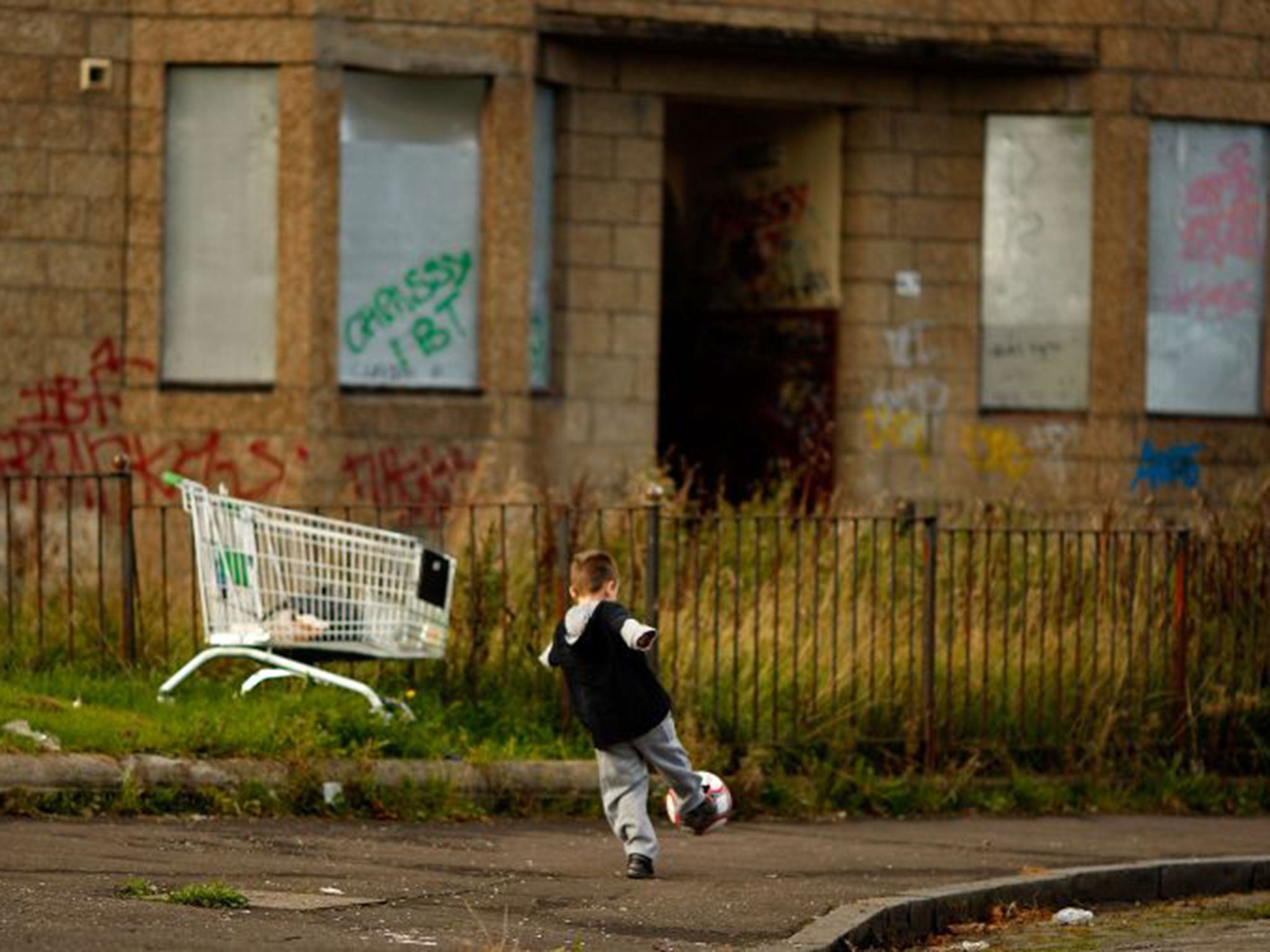Tories under fire for not targeting child poverty

The Conservatives were accused today of refusing to set new targets for reducing child poverty because their next round of spending cuts would increase the scale of the problem.
The Government’s watchdog on poverty estimates that the number of children growing up in poor families will rise from 2.6m to 3.5m in 2020 – the date by which the three main political parties have pledged to eradicate it.
However, the Commission on Social Mobility and Child Poverty believes the rise will be even greater because the 3.5m estimate does not take account of the further austerity measures planned after next May’s general election. That means it could be over 4m by 2020. The Tories have pledged to freeze most working age benefits, including tax credits, for two years from 2016 but that would contribute only £3.2bn towards their £12bn planned welfare cuts.
Alan Milburn, the commission chairman, appealed to all three main Westminster parties to be more honest with the voters by admitting the 2020 target for ending child poverty would be missed and to replace it with a set of more realistic goals.
The former Labour Cabinet minister criticised the Coalition for failing to agree a new poverty target after rival proposals by Iain Duncan Smith, the Work and Pensions Secretary, and the Liberal Democrats, were both blocked by George Osborne, the Chancellor.
Mr Milburn said: “You cannot have a situation where government ministers first discredit a target and then fail to agree a new target and then go back to a discredited old target. That is beyond a Whitehall farce.” His message to the Tories, Lib Dems and Labour was: “They are great at talking the talk, the issue is whether they can walk the walk. The policies lack the scale to move the dial.”
In its final “state of the nation” report before next May’s election, the commission warned that 2020 could be a “watershed” for the wrong reasons – it could mark the first decade in which absolute poverty increased since records began in the 1960s. This is defined as a family income of less than 60 per cent of the median.
Nick Clegg, the Deputy Prime Minister, said he shared Mr Milburn’s “despair with the Conservatives" over the blocking of "meaningful" new child poverty targets. "It dismayed me then and it dismays me now that the Conservatives have basically decided to turn their back on child poverty," he told his monthly press conference. "It says everything you need to know about the new approach of the Conservative Party that, as George Osborne announced at his party conference, the tax cuts they are offering will all be paid for by the poor or by a significant deterioration in the public services on which more vulnerable people rely.”
Labour claimed Mr Milburn was “plainly absurd” to play down the impact of the party’s pledge to raise the national minimum wage to £8 an hour by 2020. Labour said the move would increase the minimum wage’s value from 53 to 58 per cent of average earnings.
David Cameron's official spokesman accepted that more needed to be done but insisted that child poverty was at its lowest for 30 years, with 290,000 fewer children now growing up in workless households. "It is through greater employment opportunities for the households in which children grow up that we can best address this issue,” he said.
Subscribe to Independent Premium to bookmark this article
Want to bookmark your favourite articles and stories to read or reference later? Start your Independent Premium subscription today.

Join our commenting forum
Join thought-provoking conversations, follow other Independent readers and see their replies